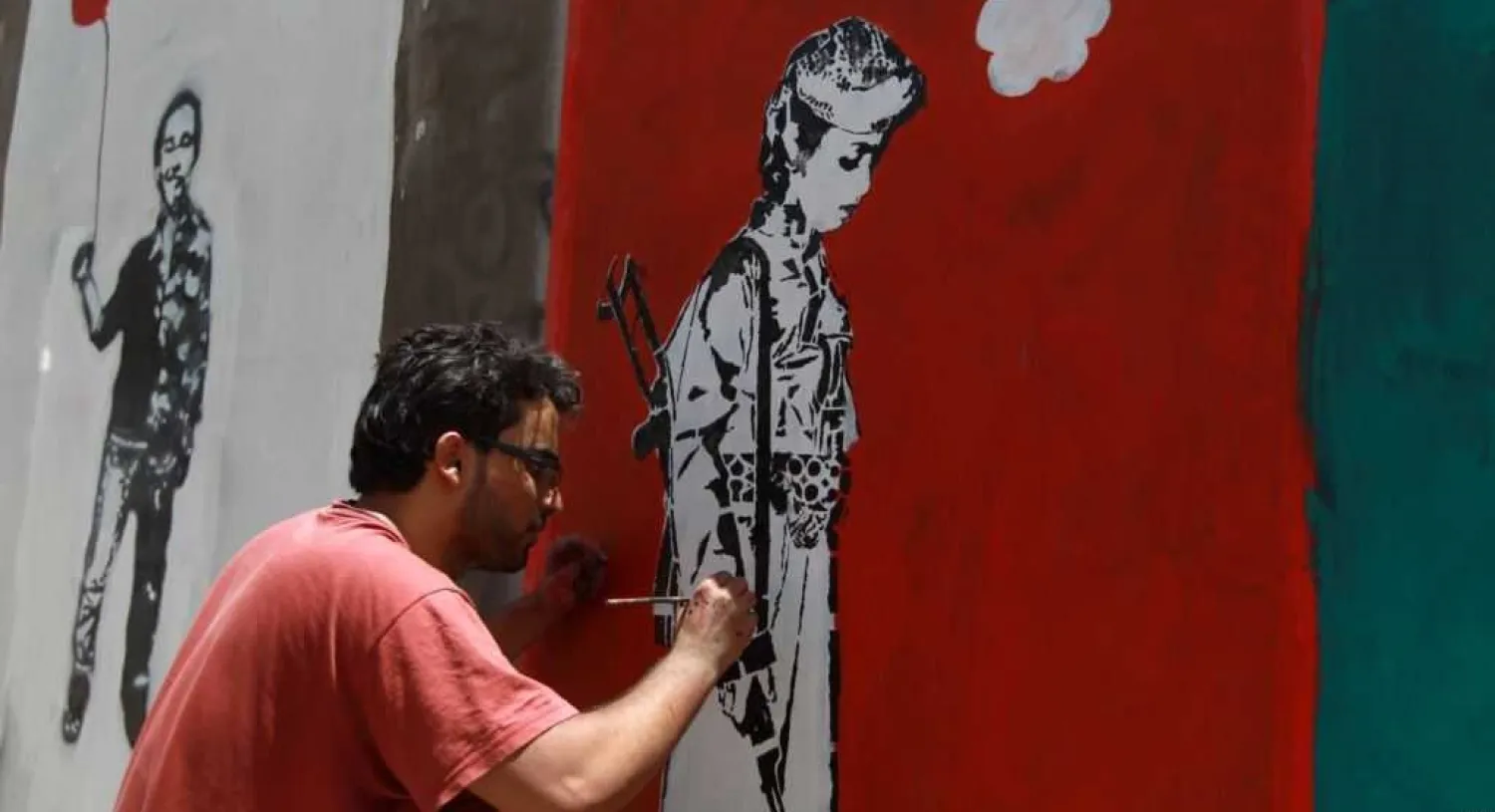Houthi militias have recently imposed restrictions on cultural events in Sanaa and the rest of Yemeni areas falling under their control in an attempt to serve their ideological objectives.
Yemeni activists in Sanaa said the Iran-backed insurgents banned last Thursday an art event in the streets of the capital.
The activists said Houthis prevented Yemeni artists from drawing in public as part of an open art day, forcing them to disperse.
Sources said the event was canceled although the concerned artists had received a permit from the official apparatuses controlled by Houthis in Sanaa.
Yemeni activist Wameed Shaker wrote on her Facebook page Friday that Houthis asked participants in the open art day to draw paintings against the legitimate government and the Arab Coalition supporting it.
“Under the force of arm, the militias told participants to leave the area despite receiving a permit from Hammoud Abad, who is appointed by Houthis as Sanaa administrator,” she wrote.
Young Yemeni artists on Friday decried the ban.
They said the Houthi behavior is a reflection of “the Khomeinist ideology that controls the rebel group, and wants to limit freedoms in Yemen.”
Since their coup in 2014, Houthis have stamped sectarian drawings and slogans on the capital’s walls, in addition to writing quotes from their leader Abdul-Malik al-Houthi and his brother Hussein.
The rebel group has also broken into wedding ceremonies in Sanaa, Amran and other areas, preventing people from playing music, in measures similar to those adopted by other terrorist groups, such as ISIS and al-Qaeda.
In the past few years, Yemeni-controlled areas have witnessed an unprecedented cultural stagnation after the closure of more than 200 publication houses.
The rebel group continues to impose its sectarian ideology on the curricula of universities and schools, in addition to promoting their thoughts in mosques and public areas.









